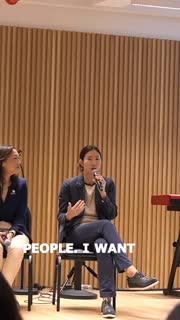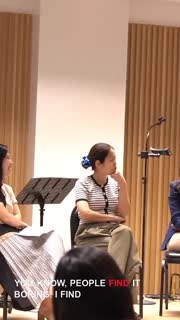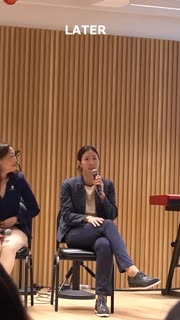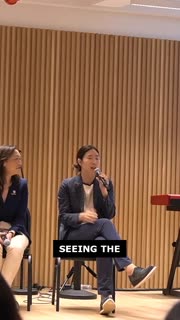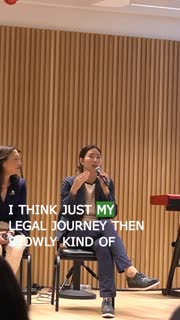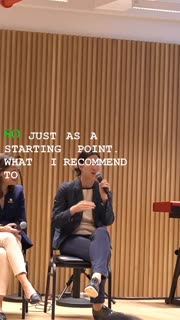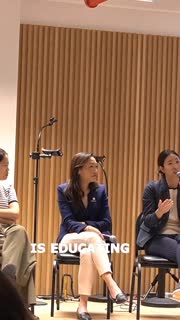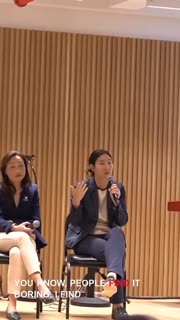Empowering Civic Engagement for the 2024 Elections
Devotional
Sermon Summary
Bible Study Guide
Sermon Clips
### Quotes for outreach
1. "I want to be like those people. I want to care about my community and serve my community and use my gifts and talents that God has given me to serve my community. And I thought that, okay, I think that I'm really good at... You know, I think I'm good at helping people, like, solve real tangible, like, quality-of-life issues or, like, just resolving issues and coming to a decision." [29:14] (20 seconds)
2. "I'm hoping to, yeah, marry those values of service in my faith with what I'm doing. Yeah. I mean, it's hard. I mean, number one, most people are not that interested. It's like a boring talk. You know, people find it boring. I find I love it. But, you know, when I start talking about, like, oh, local community issues, they're like, okay, whatever." [44:56] (60 seconds)
3. "I came into faith later in life, you know, initially. I was like, you know, I'm going to be a lawyer. I'm going to kick butt, you know. I started out, you know, I wanted to be cool. So, you know, I started... What? Lawyers are not cool? No. But I started out kind of in financial enforcement. Like, I did white collar crime with the Department of Justice. And I just wanted to be cool. You know, my faith had nothing to do with it, honestly. I just wanted to be cool." [27:39] (29 seconds)
### Quotes for members
1. "I think just seeing the passion that people had for their community also kind of entrenched in me, like, wow, like, I want to be like those people. I want to care about my community and serve my community and use my gifts and talents that God has given me to serve my community. And I thought that, okay, I think that I'm really good at... You know, I think I'm good at helping people, like, solve real tangible, like, quality-of-life issues or, like, just resolving issues and coming to a decision." [29:14] (26 seconds)
2. "I think just my legal journey then slowly kind of catered in that direction where then I got this... I started volunteering more for, like, civic organizations, you know, voting, education, especially in the AAPI community. And I got that opportunity to work for the redistricting commission where we redrew the city council districts. And I was just blown away by how people just really loved their community and, like, really felt for their community." [29:14] (30 seconds)
3. "So just as a starting point. What I recommend to people, just very low key, is, like, follow your elected officials on Instagram or social media and sign up for their newsletters. Right? Because they tell you, like, hey, this is what's going on in our community. So, like, each city council member has, like, a, you know, newsletter, e-mail newsletter. Join their e-mail subscribe list." [45:41] (23 seconds)
4. "The first step is educating yourself. And then if you do have time commitments, you know, if you want to commit time, there's joining the community board. Like, you know, joining your community board as a member. I think applications, they vary. I think they may have passed already at this point. Yeah. They passed. But it's a two-year term. So look it up. I don't want to go into the whole spiel about community board. But you can definitely look it up. Look up your community board." [48:20] (24 seconds)
5. "I mean, and it also gives me the flexibility to do this work because I am passionate about it. So I'm hoping to, yeah, marry those values of service in my faith with what I'm doing. Yeah. I mean, it's hard. I mean, number one, most people are not that interested. It's like a boring talk. You know, people find it boring." [44:56] (60 seconds)
Ask a question about this sermon
1. "I want to be like those people. I want to care about my community and serve my community and use my gifts and talents that God has given me to serve my community. And I thought that, okay, I think that I'm really good at... You know, I think I'm good at helping people, like, solve real tangible, like, quality-of-life issues or, like, just resolving issues and coming to a decision." [29:14] (20 seconds)
2. "I'm hoping to, yeah, marry those values of service in my faith with what I'm doing. Yeah. I mean, it's hard. I mean, number one, most people are not that interested. It's like a boring talk. You know, people find it boring. I find I love it. But, you know, when I start talking about, like, oh, local community issues, they're like, okay, whatever." [44:56] (60 seconds)
3. "I came into faith later in life, you know, initially. I was like, you know, I'm going to be a lawyer. I'm going to kick butt, you know. I started out, you know, I wanted to be cool. So, you know, I started... What? Lawyers are not cool? No. But I started out kind of in financial enforcement. Like, I did white collar crime with the Department of Justice. And I just wanted to be cool. You know, my faith had nothing to do with it, honestly. I just wanted to be cool." [27:39] (29 seconds)
### Quotes for members
1. "I think just seeing the passion that people had for their community also kind of entrenched in me, like, wow, like, I want to be like those people. I want to care about my community and serve my community and use my gifts and talents that God has given me to serve my community. And I thought that, okay, I think that I'm really good at... You know, I think I'm good at helping people, like, solve real tangible, like, quality-of-life issues or, like, just resolving issues and coming to a decision." [29:14] (26 seconds)
2. "I think just my legal journey then slowly kind of catered in that direction where then I got this... I started volunteering more for, like, civic organizations, you know, voting, education, especially in the AAPI community. And I got that opportunity to work for the redistricting commission where we redrew the city council districts. And I was just blown away by how people just really loved their community and, like, really felt for their community." [29:14] (30 seconds)
3. "So just as a starting point. What I recommend to people, just very low key, is, like, follow your elected officials on Instagram or social media and sign up for their newsletters. Right? Because they tell you, like, hey, this is what's going on in our community. So, like, each city council member has, like, a, you know, newsletter, e-mail newsletter. Join their e-mail subscribe list." [45:41] (23 seconds)
4. "The first step is educating yourself. And then if you do have time commitments, you know, if you want to commit time, there's joining the community board. Like, you know, joining your community board as a member. I think applications, they vary. I think they may have passed already at this point. Yeah. They passed. But it's a two-year term. So look it up. I don't want to go into the whole spiel about community board. But you can definitely look it up. Look up your community board." [48:20] (24 seconds)
5. "I mean, and it also gives me the flexibility to do this work because I am passionate about it. So I'm hoping to, yeah, marry those values of service in my faith with what I'm doing. Yeah. I mean, it's hard. I mean, number one, most people are not that interested. It's like a boring talk. You know, people find it boring." [44:56] (60 seconds)
